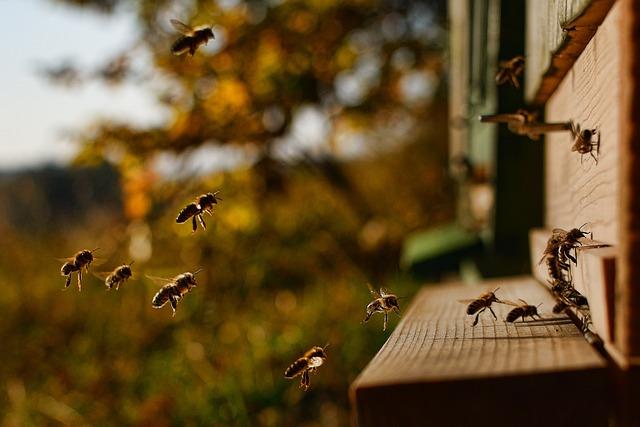NZ bureaucrats burn $2 million of local apiary’s inventory
“The management agency does not enjoy destroying beekeepers’ livelihoods,” said Niharika Long, the bureaucrat who ordered $2 million worth of Springbank Honey’s inventory to be destroyed despite a conclusive reason to do so.
Here’s the story, from a report by Katie Oliver at The New Zealand Herald:
A New Zealand beekeeper said he is $2 million out of pocket after being ordered to destroy thousands of hives, by authorities that found traces of American foulbrood disease (AFB).
North Canterbury company Springbank Honey was forced to burn thousands of bee boxes by the National American Foulbrood Management Agency.
…
Springbank Honey director Steven Brown said they faced criminal prosecution if they didn’t destroy the affected hives - even though the disease itself wasn’t detected.
‘They ran six tests, two of them came back as having AFB spores... they did not find any clinical disease there,’ he said.
Long declined to be transparent regarding the spore count (and the facts of the case) citing “commercially sensitive” privilege, but per Brown, the NAFMA detected spores in just two beehive boxes, yet the business was forced to burn ten thousand of them which contained more than two million dollars worth of honey, with only one week to do so. Now Brown is a veteran of the apiary industry with more than 30 years of experience under his belt (he was an inspector himself too at one point), and here’s this, from an item at Newshub:
Brown says AFB does nothing to the honey, it only affects bee larvae.
…
Brown says he spends up to $50,000 every month testing his product, and he believes he's been unfairly targeted.
‘I know they weren’t diseased. They had no disease in them. These were disease-free boxes that had no problems that are now burnt,’ he said.
And, as Oliver also reported:
Brown does not believe that the number of spores detected justified the amount of boxes burned.
‘The issue is not that we don’t believe in trying to get rid of AFB out of beehives, we have no problems with that,’ Brown said.
He believes the spore levels were well below the infecting level.
I’m no scientist, but a 33% spore detection rate doesn’t seem like a conclusive finding, and certainly doesn’t make obliterating Springbank’s business justified. I mean, how reliable are these tests? Forgive me if I don’t exactly trust the reliability of “scientific” testing methods in a post-Covid world. From the NAFMA’s website:
Spores are the only form of the disease that can infect healthy larvae. As well, the spores can only increase in number by infecting a larva. They do not multiply in any other environment (e.g. honey or beekeeping equipment). AFB spores will only multiply inside a larva.
AFB was first discovered in New Zealand in 1877, and by 1906 the government had authorized itself to control disease management—now Springbank has been in business for more than 70 years, and if anyone doesn’t want to see the bee populations destroyed by a disease from which bees cannot recover, it’s the business that counts these bees as their livelihood, not the quasi-government outfit with administrative control.
Brown worries that those acting as bureaucrats aren’t necessarily the most qualified and competent people—I’m going to just go out on a limb here and wager that he’s right—but I have to wonder, since Long asserted that “many of the inspectors are beekeepers themselves” whose only goal is to “protect their industry” by which they earn a livelihood, how many of them are…competitors too? I mean, doesn’t Brown have a vested interest in protecting the industry too? He also needs thriving and healthy bee colonies to keep his business, in business, so it’s a little hard to believe that he’d risk the entire enterprise and industry to foolishly cut corners; after all, Brown is running an outfit that has a spot in the global marketplace, and he already invests tens of thousands of dollars every month to ensure his colonies and products are healthy and disease-free.
I hate to be a “conspiracy theorist” but since bioweapons are a very real thing, how can one be sure that the big government demanding total and tyrannical control of the people isn’t doing something shady? Especially concerning bees, which are a critical part of the biosphere—without pollinators, would the world eat? Hardly.
And, isn’t the culling of the human herd kind of the goal of the unelected globalist regimes, some of which have their tentacles in New Zealand? Sure, darling of the World Economic Forum Jacinda Ardern is no longer prime minister, having resigned from the post last year, but does her departure mean the rest of the swamp has been drained? Again, hardly.
Lastly, from Oliver:
Long wants to acknowledge the compliance of Springbank Honey.
‘They’re showing a huge amount of bravery and they’re essentially protecting the rest of the sector... The management agency does not enjoy destroying beekeepers’ livelihoods,’ she said.
War is peace… freedom is slavery… ignorance is strength… and forced compliance with tyranny is bravery.

Image: Free image, Pixabay license.





